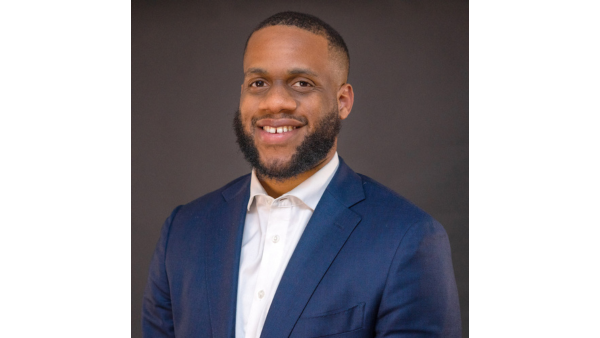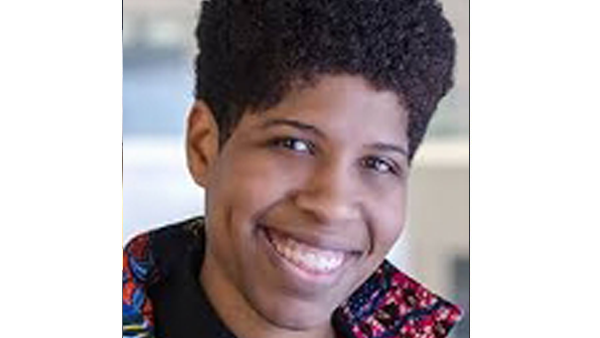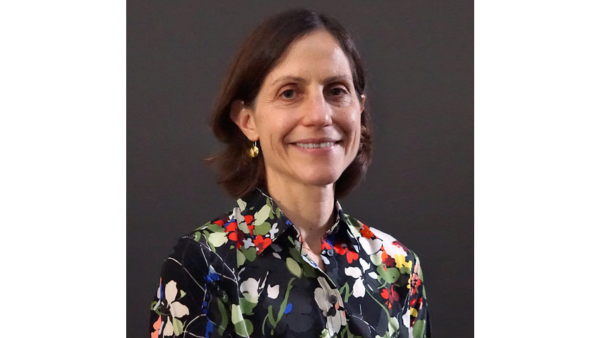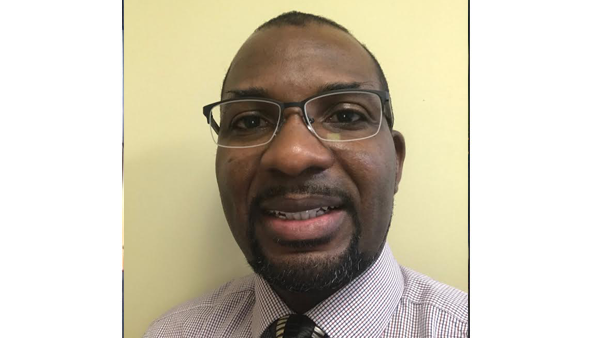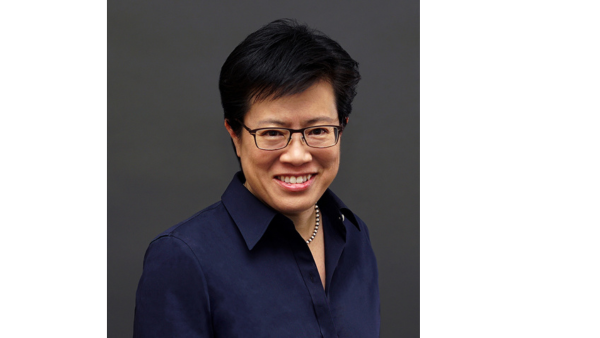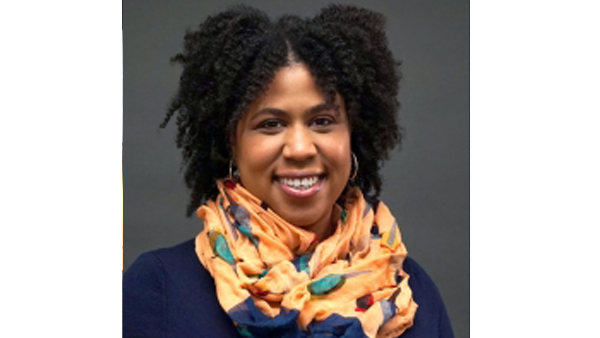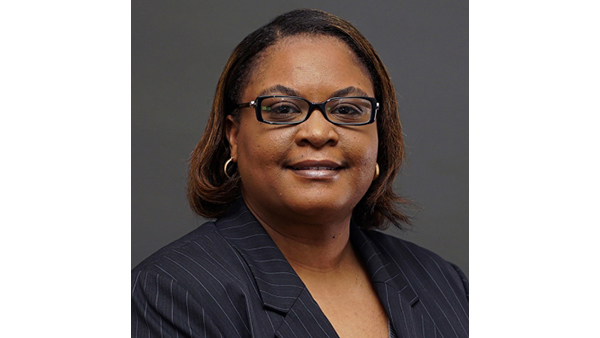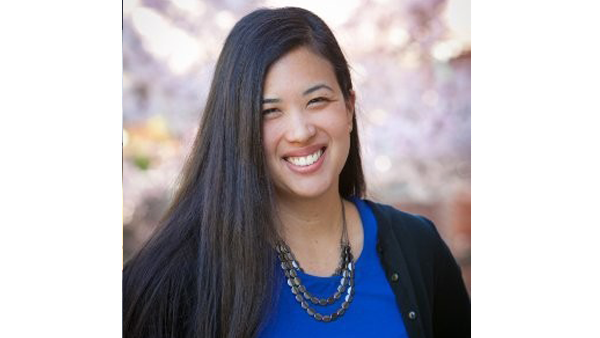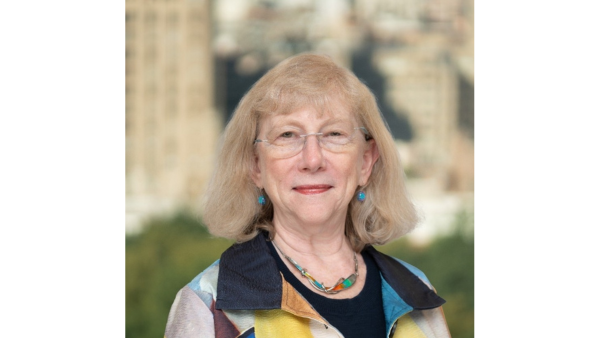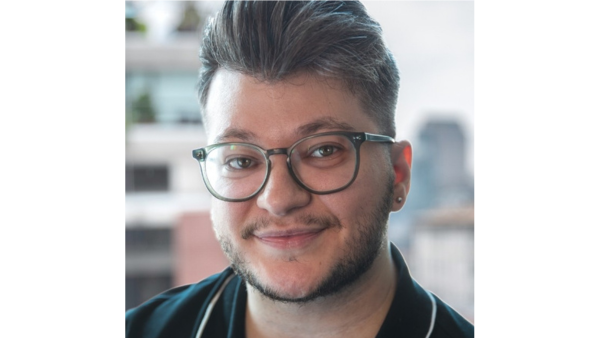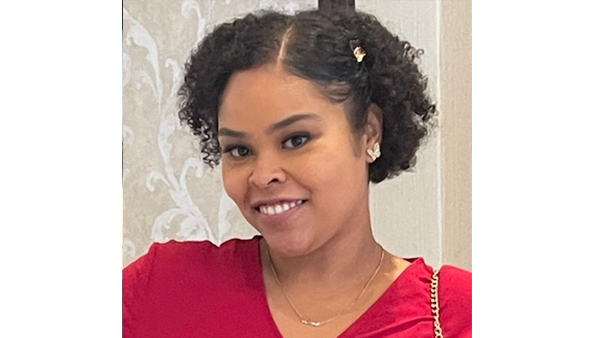Throughout the PQAR summer program students will be given a series of lectures from NYU/NYC faculty and researchers, on subjects related to Responsible Conduct of Research (RCR), Professional Development, Site visits and general aging-related topics. The biographies of this summer's featured speakers are listed below.
Faculty Lecture Series
Jemar Bather, PhD
Senior Scientist, Biostatistics | Merck Research Laboratories; Visiting Assistant Professor of Biostatistics | NYU School of Global Public Health
Emma K. T. Benn, DrPH
Associate Professor, Center for Biostatistics and Department of Population Health Science and Policy | Icahn School of Medicine at Mount Sinai (ISMMS)
Rebecca Betensky, PhD
Chair of the Department of Biostatistics | NYU School of Global Public Health
Anthony Briggs, PhD
Research Assistant Professor, Department of Neurology | NYU Grossman School of Medicine
Omonigho Michael Bubu, MD
Assistant Professor & Physician-Scientist | NYU Grossman School of Medicine
Virginia Chang, MD, PHD
Associate Professor of Social and Behavioral Sciences | NYU School of Global Public Health
Stephanie Cook, PhD
Assistant Professor of Biostatistics & Social and Behavioral Sciences | NYU School of Global Public Health
Melody Goodman, PhD
Interim Dean, Professor of Biostatistics | NYU School of Global Public Health
Responsible Conduct of Research Series
Debra Schaller-Demers, MSOM
Senior Director & Research Integrity Officer | NYU Office of the Vice Provost for Research
Ivan Oransky, MD
Editor in Chief | Spectrum; Distinguished Writer in Residence | NYU Arthur Carter Journalism Institute; Co-Founder | Retraction Watch
Alexander Pines
Assistant Director, Global Inclusion Education and Training | NYU Office of Global Inclusion
Vicky Rampin, MLIS
Librarian for Research Data Management and Reproducibility | NYU Libraries: Data Services
Jihan (Iris) Zhang, MS
Second Year PhD student in Biostatistics | NYU School of Global Public Health
Professional Development Series
Rebeca Checo
Eliseo Guallar, MD, DrPH
Chair and Professor of the Department of Epidemiology | NYU School of Global Public Health
Mengling Liu, PhD
Professor, Department of Population Health | NYU Grossman School of Medicine
Jemar Bather, PhD
Dr. Jemar Bather is a Senior Scientist in Biostatistics at Merck Research Laboratories and a Visiting Assistant Professor of Biostatistics at the NYU School of Global Public Health. He leverages statistical tools to address public health challenges in infectious diseases and social epidemiology. Dr. Bather is also passionate about increasing diversity in public health and statistics. He received his PhD and MA in biostatistics from Harvard University, MS in applied statistics from NYU Steinhardt, and his BS in statistics from Penn State.
Emma K. T. Benn, DrPH
Dr. Emma K. T. Benn is an Associate Professor in the Center for Biostatistics and Department of Population Health Science and Policy and the Founding Director of the Center for Scientific Diversity at the Icahn School of Medicine at Mount Sinai. Dr. Benn enjoys contributing her biostatistical expertise to health equity research and to research investigating best practices for recruiting, retaining, and advancing underrepresented trainees and faculty in the biomedical research workforce. Dr. Benn serves as the PI of the Clinical Research Education in Genome Science Short Course. Dr. Benn holds the prestigious honors of American Statistical Association Fellow, Association for Women in Mathematics Fellow, and being a part of the Committee of Presidents of Statistical Societies Inaugural Leadership Cohort. Dr. Benn has a BA in Chemistry (Spanish Minor) from Swarthmore College and an MPH in Sociomedical Sciences and DrPH in Biostatistics from Columbia University Mailman School of Public Health.
LinkedIn | Twitter | Website
Rebecca Betensky, PhD
Prior to NYU, Dr. Betensky was Professor of Biostatistics at the Harvard T.H. Chan School of Public Health. She was director of the Harvard Catalyst (Clinical and Translational Science Award) Biostatistics Program; director of the Data and Statistics Core for the Massachusetts Alzheimer’s Disease Research Center; and director of the Biostatistics Neurology Core at Massachusetts General Hospital. Previously, she was the Biostatistics Program Leader for the Dana-Farber/Harvard Cancer Center.
Dr. Betensky’s research focuses on methods for the analysis of censored and truncated outcomes and covariates, which frequently arise from the subsampling of cohort studies. She has a long-time interest in clinical trials, and has written on the evaluation of biomarkers and the use and interpretation of p-values. She has collaborated extensively in studies in neurologic diseases, and serves as statistical editor for Annals of Neurology.
Dr. Betensky was awarded, and directed for 15 years, an NIH T32 training program in neurostatistics and neuroepidemiology for pre- and post-doctoral students in biostatistics and epidemiology and for clinician-scientists. She previously directed Harvard’s Biostatistics programs to promote and support diversity at all levels in the field of quantitative public health. She was also a member of the BMRD Study Section for review of NIH statistical methodology grants; on committees for the Institute of Medicine; and a co-chair of the technical advisory committee for the scientific registry of transplant recipients.
Dr. Betensky an elected Fellow of the American Statistical Association and of the International Statistical Institute, and is a past recipient of the Spiegelman Award from the American Public Health Association. She currently serves as a member of the Board of Scientific Counselors for Clinical Science and Epidemiology at the National Cancer Institute.
Anthony Briggs, PhD
I am currently a Research Assistant Professor in the Department of Neurology at NYU Grossman School of Medicine. My public health research seeks to provide an in-depth comprehension of aging, sleep health issues, biomarkers, early onset cognitive decline, (i.e., subjective cognitive decline) mediated by social determinants of health (SDOH) in racial and ethnic groups, especially Africans- Caribbeans- Americans.
I am also committed to developing recruitment and retention strategies for clinical and community health research and the decision making process for physical, mental, cognitive and brain health screening (i.e. sleep and cognitive decline) for Caribbean and African Americans, especially to improve brain and cognitive related health at the national and international level.
Omonigho Michael Bubu, MD
Dr. Bubu is an Assistant Professor and physician scientist at NYU Grossman School of Medicine (NYUSoM), in the Departments of Psychiatry, Population Health and Neurology, with a programmatic research focus on sleep, aging and Alzheimer’s disease (AD). Dr. Bubu has graduate, internship, and fellowship-level clinical and research training in neurology, neuro-epidemiology and public health. His research examines how age-related and age dependent sleep changes, and vascular risk, impact cognitive decline and AD risk, and how they drive AD related disparities.
LinkedIn | Website
Virginia Chang, MD, PhD
Virginia W. Chang, MD, PhD is Associate Professor of Global Public Health at NYU School of Global Public Health, Associate Professor of Population Health at NYU School of Medicine, and Affiliated Associate Professor in the Department of Sociology at NYU. Dr. Chang is a graduate of the Inteflex Program at the University of Michigan, where she received her BS and MD degrees. She then completed a residency in internal medicine, fellowship training with the Robert Wood Johnson Foundation Clinical Scholars Program, and a PhD in sociology, all at the University of Chicago. Prior to joining NYU, Dr. Chang was in the Division of General Internal Medicine at the Perelman School of Medicine at the University of Pennsylvania and a staff physician at the Philadelphia Veterans Administration Medical Center.
As a physician and sociologist, Dr. Chang integrates perspectives from medicine, epidemiology, sociology, and demography in her research. Much of her work has focused on obesity and health disparities, engaging topics such as the influence of socially structured context (e.g., racial segregation, income inequality, neighborhood social/physical disorder) on obesity; the relationship of obesity to mortality and disability; the influence of weight status on the quality of medical care; socioeconomic disparities in health and mortality; and the inter-relationships between health, medical technologies, and stratification.
Stephanie Cook, PhD
Dr. Stephanie Cook’s overarching research focus is to understand how structural- and individual-level minority stressors contribute to mental health, physical health, and health behaviors across the life span. Further, she seeks to understand how features of close relationships can exacerbate or buffer the negative effects of minority stress on health. Her work primarily focuses on young adults transitioning to adulthood who are at the intersection of racial/ethnic and sexual orientation status. In addition, much of her current work examines the links between minority stress (i.e., daily experiences of discrimination) and biological markers of stress (e.g. cortisol and c-reactive protein).
Dr. Cook’s substantive methodological and statistical focus is on the development and application of longitudinal study designs (i.e., intensive longitudinal designs) for determining the ways in which dynamic changes in features of minority stress (e.g., daily and momentary discrimination events) are associated with changes in risk behaviors and physical health (e.g., sexual risk and substance use, pre-clinical cardiovascular disease, and biological stress) among racial/ethnic and/or sexual minority young adults.
Dr. Cook is the Director of the Attachment and Health Disparities Research Lab (AHDL) which is currently made up of about 20 undergraduate, graduate, and postdoctoral fellows. She developed an integrated theory of adult attachment (the Integrated Attachment and Sexual Minority Stress Model [IASMS]; i.e., the development, or lack, of strong socio-emotional bonds) and minority stress (i.e., social stress experienced by individuals in minority social groups) as a means to better understand and address the health needs of disadvantaged youth transitioning to adulthood. Dr. Cook and her team’s long-term goal is to continue creating, implementing, and refining sustainable interventions to reduce the influence of stress on health utilizing innovative methodologies.
LinkedIn | Twitter | Website
Melody Goodman, PhD
Dr. Melody Goodman’s efforts seek to understand the social risk factors that contribute to health disparities in urban areas, with the goal of developing culturally competent, region-specific, and evidence-based solutions through collaborative activities with community members, community-based organizations, faith-based organizations, and other community health stakeholders. The purpose of her work is the development of solutions for improving health in minority and medically underserved communities.
Dr. Goodman conducts applied biostatistical and surveys research for community-based interventions and health disparities research with a strong focus on measurement. Additionally, through academic-community collaborations, she implements, evaluates, and enhances the infrastructure of community-engaged research, in order to mitigate health disparities. As such, Dr. Goodman is the Principal Investigator of a Patient-Centered Outcomes Research Institute (PCORI) grant that aims to validate and implement a quantitative survey measure to assess the level of community engagement in patient-centered outcomes research (PCOR) and clinical effectiveness research (CER) studies from the community stakeholder perspective.
Twitter
Emy Cardoza, MA
Emy Cardoza is the director of global diversity education and faculty engagement. She provides strategic direction for global diversity education and training. She also develops and facilitates global inclusion, diversity, belonging, equity, and access (GIDBEA)-focused curriculum for students, staff, and faculty across the global network. Prior to this role, Emy served as the associate dean for student life at Barnard College and the associate director for multicultural student affairs at the University of Chicago. She brings over a decade of experience in diversity education and curriculum design, focusing on a holistic approach to student learning and identity development.
Emy received her BA in Religious Studies from Rollins College and has also earned a Master of Divinity from the University of Chicago and a Master of Education from Loyola University Chicago. She is currently pursuing a PhD in Philosophy and Education at Teachers College, Columbia University.
Debra Schaller-Demers, MSOM
Debra (Debbie) Schaller-Demers, MSOM serves as Senior Director for Research Integrity and Compliance (RIC) and the Research Integrity Officer in the Office of the Vice Provost for Research (OVPR) at New York University (NYU). A seasoned leader and collaborator, Debra has over 20 years of experience in research management in higher education and non-profit organizations, with a successful track record in responsible conduct of research including compliance, outreach, and education.
Ivan Oranksy, MD
Ivan Oransky, MD, is co-founder of Retraction Watch, editor in chief of Spectrum, and distinguished writer in residence at New York University's Arthur Carter Journalism Institute. He also serves as president of the Association of Health Care Journalists. Ivan previously was vice president of editorial at Medscape, global editorial director of MedPage Today, executive editor of Reuters Health, and held editorial positions at Scientific American and The Scientist. A 2012 TEDMED speaker, he is the recipient of the 2015 John P. McGovern Medal for excellence in biomedical communication from the American Medical Writers Association, and in 2017 was awarded an honorary doctorate in civil laws from The University of the South (Sewanee). In 2019, the judges for the John Maddox Prize, which promotes those who stand up for science in the face of hostility, gave him a commendation for his work at Retraction Watch.
Twitter: @ivanoransky and @retractionwatch | Website
Alexander Pines
Alexander Pines is the assistant director of global inclusion education and training. In his role, Alexander develops and facilitates global inclusion, diversity, belonging, equity, and access (GIDBEA)-focused curriculum for students, staff, and faculty across the global network. He also supports programming at CMEP and within OGI more broadly, including the cultural graduations and Solidarity Week. Prior to this role, he worked within the Office of Student Success and Financial Education team to help students build academic skills, navigate the university, and overcome barriers to retention and graduation.
He holds a Bachelor of Arts in American studies and creative writing from Columbia University and a Master of Fine Arts from the Nonfiction Writing Program at the University of Iowa, where he also taught literature and writing with an emphasis on social justice. His essays and criticism about queerness, trans masculinity, monsters, and American empire have appeared in Bomb, The Rumpus, The Black Warrior Review, VICE, and elsewhere.
Vicky Rampin, MLIS
Vicky Rampin is the Librarian for Research Data Management and Reproducibility, as well as the liaison librarian to data science, at New York University. Vicky supports researchers of all levels and disciplines through individual and group consultations, teaching workshops, and maintaining documentation and tools to help implement data management and reproducibility practices. Her research centers on integrating reproducible practices into different research workflows, advocating openness for all research materials, and contributing to open infrastructure.
Twitter: @VickyRampin | Website
Jihan (Iris) Zhang, MS
I am a doctoral student at NYU School of Global Public Health with the concentration in Biostatistics. Before joining NYU GPH, I did my undergrad in applied mathematics with a minor in computer science at Case Western Reserve University and my master in data science at University of Pennsylvania. My research interests mainly focus on machine learning, especially on transfer learning, deep learning, and their applications to biomedical data.
Rebeca Checo
Rebeca Checo is a higher education administrator who serves as the Graduate Recruitment Specialist for the Office of Admissions & Enrollment. Joining GPH in 2022, Rebeca has managed and advised hundreds of prospective and newly admitted students as they begin their studies here at GPH. Rebeca's passion for student success, the future of higher education, and providing a safe & inclusive environment for all student communities has brought her to begin her MA degree program in Higher Education & Student Advising at NYU Steinhardt, in the upcoming Fall 2023 semester.
Rebeca will present to students on the topic of applying to Masters programs.
Yang Feng, PhD
Yang Feng is a Professor and Ph.D. Program Director of Biostatistics in the School of Global Public Health and an affiliate faculty in the Center for Data Science at New York University. He obtained his Ph.D. in Operations Research at Princeton University in 2010.
Feng's research interests encompass the theoretical and methodological aspects of machine learning, high-dimensional statistics, social network models, and nonparametric statistics, leading to a wealth of practical applications, including Alzheimer's disease, cancer classification, and electronic health records. His research has been funded by multiple grants from the National Institutes of Health (NIH) and the National Science Foundation (NSF), notably the NSF CAREER Award.
He is currently an Associate Editor for the Journal of the American Statistical Association (JASA), the Journal of Business & Economic Statistics (JBES), Journal of Computational & Graphical Statistics (JCGS), and the Annals of Applied Statistics (AoAS). His professional recognitions include being named a fellow of the American Statistical Association (ASA) and the Institute of Mathematical Statistics (IMS), as well as an elected member of the International Statistical Institute (ISI).
Eliseo Guallar, MD, DrPH
Dr. Guallar is an epidemiologist whose research is focused on the study of cardiovascular disease epidemiology and prevention, with an emphasis on evaluating the role of environmental and nutritional exposures in the development of cardiovascular disease. This research has made critically important and novel contributions to our understanding of risk factors for chronic disease both in the US and globally. He has published seminal articles and is a leading figure in an emerging field highlighting the risks of exposure to levels of metals previously considered safe for cardiovascular health. In addition to his work in toxic metals, Dr. Guallar has made important contributions to understanding the effects of certain micronutrients and vitamin supplements on cardiovascular disease risk and outcomes. Publications in this area were influential in changing consumer habits and attitudes towards these products. Much of this research has been funded by the National Institutes of Health, the Agency for Healthcare Research and Quality, the American Heart Association, the CDC, and other funders.
Dr. Guallar was the founding director of the Center for Clinical Epidemiology at the Samsung Medical Center and a lead investigator of the Kangbuk Samsung Cohort Study at the Kangbuk Samsung Hospital since its inception in 2010. Dr. Guallar has published over 500 research papers in peer-reviewed journals. He is also a Deputy Editor for Methods at the Annals of Internal Medicine and a past member and Chair of the Cancer, Heart, and Sleep Study Section at the National Institutes of Health.
Prior to teaching at NYU, Dr. Guallar was a Professor of Epidemiology and Medicine at the Johns Hopkins University Bloomberg School of Public Health and a core faculty member of the Welch Center for Prevention, Epidemiology, and Clinical Research at Johns Hopkins. In the Department of Epidemiology, Dr. Guallar was the Director of the Environmental and Occupational Area of Concentration and the Co-Director of the PhD Program. Dr. Guallar was also an adjunct Professor at the Department of Clinical Research Design and Evaluation of the Samsung Advanced Institute for Health Science and Technology, Sungkyunkwan University, in Seoul, Korea.
Mengling Liu, PhD
My research is primarily focused on developing and applying statistical methods and algorithms for analyzing biomedical data, with the goal of identifying important signals and messages from data to improve human health.
I led multiple NIH-funded projects as the PI, MPI, or sub-contract PI on developing innovative statistical methods for the analysis of complex survival and longitudinal data, investigating population heterogeneity in pooling projects, and building breast cancer risk prediction models. Currently, I’m leading an R01 project on developing statistical methodology for evaluating time-dependent environmental mixtures and a U01 project with Dr. Reibman (MPI) studying the complex WTC exposures' impact on persistent airflow limitation in the WTC Survivor population.
I have a broad range of collaborations with clinical and basic science investigators from multiple departments at NYU Langone, supporting statistical needs in biomedical projects. As the Graduate Advisor for our Biostatistics PhD Program in the Vilcek Institute of Graduate Biomedical Sciences, I work closely with our graduate students on training and research during their entire course in the program.
